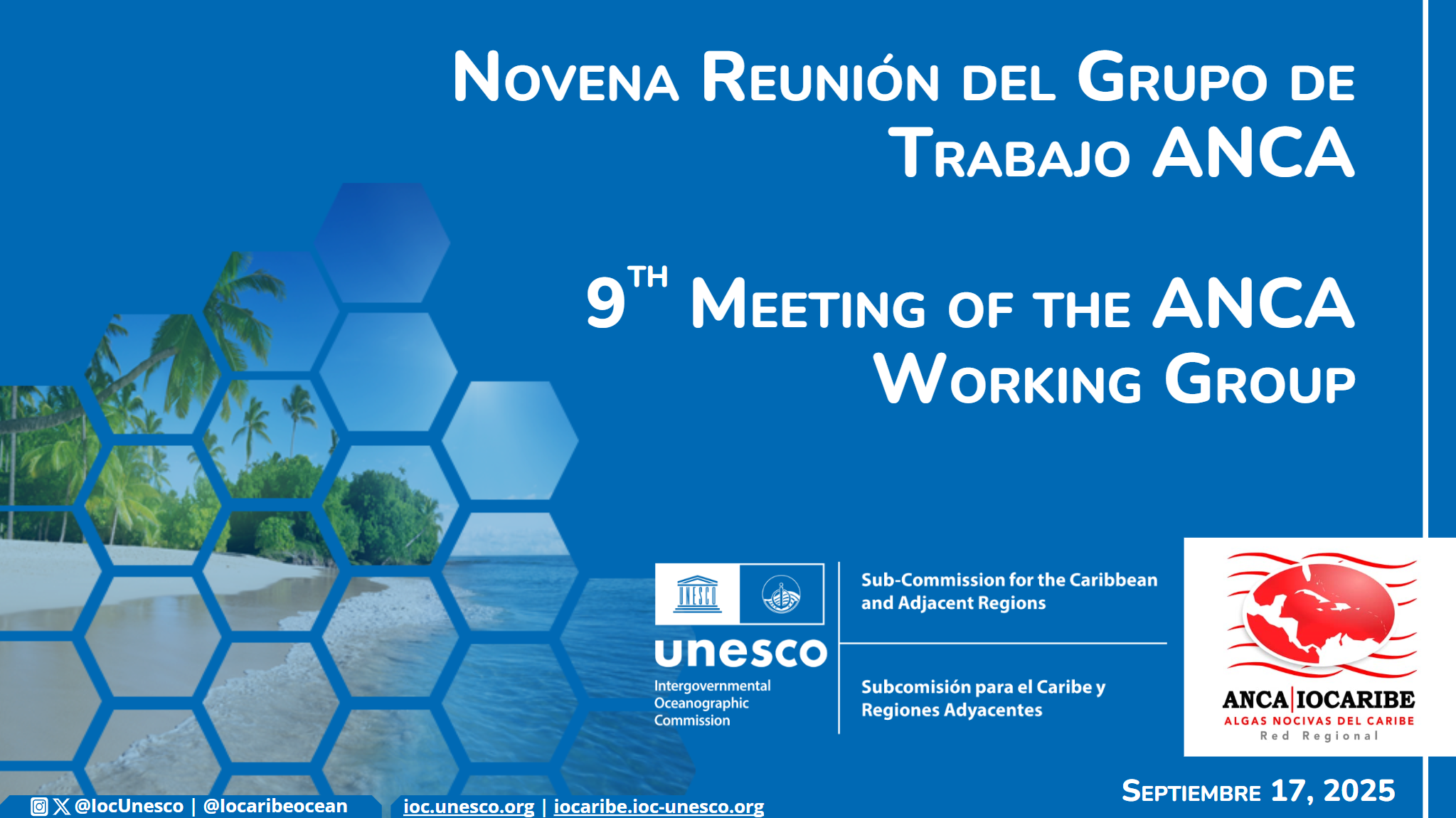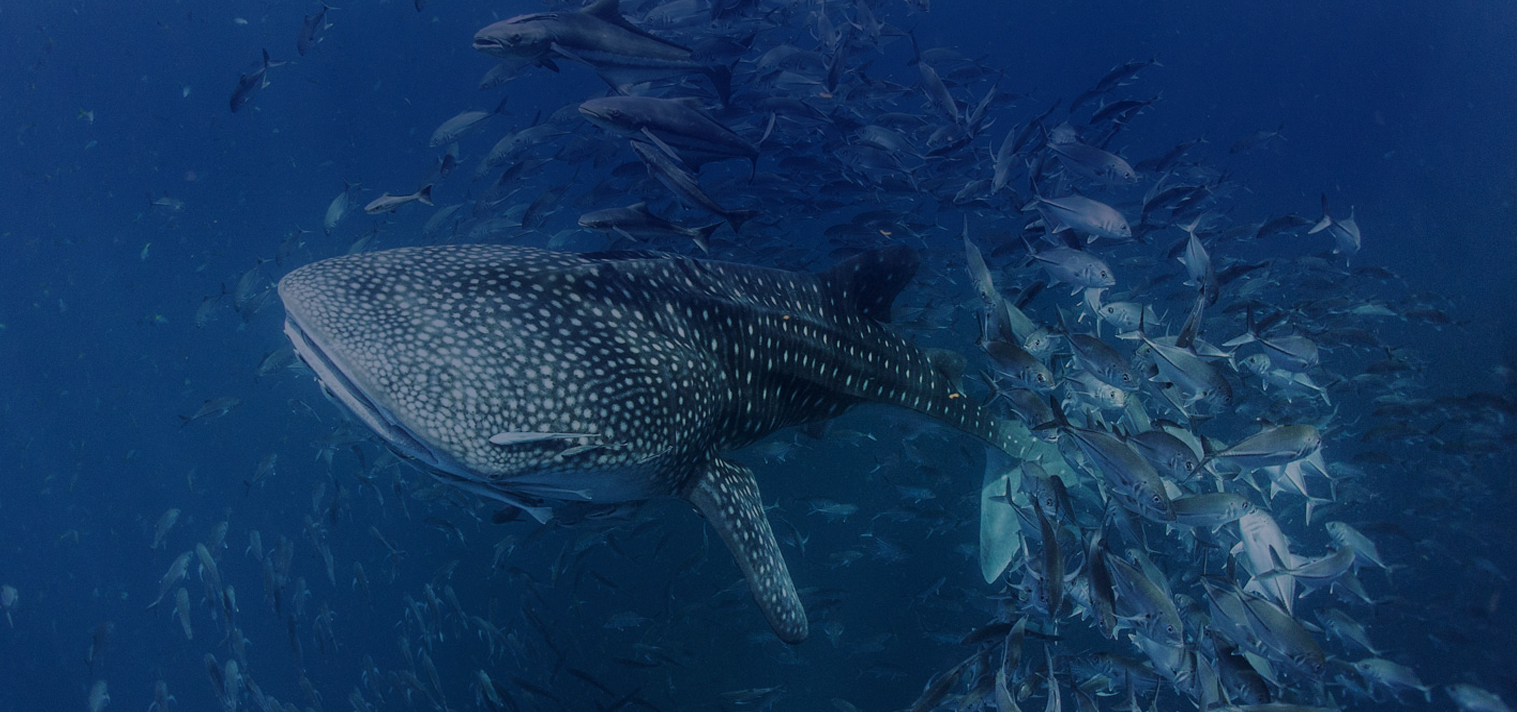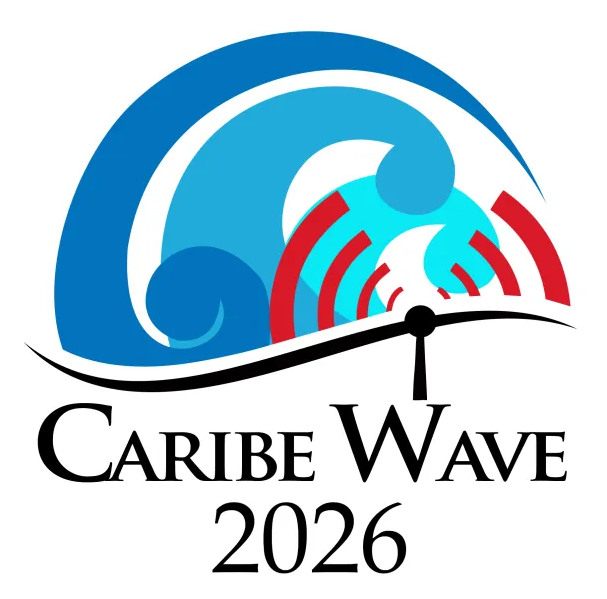Ninth Meeting of the ANCA Working Group
On 17 September 2025, the Ninth Meeting of the Working Group on Harmful Algae in the Caribbean (ANCA) was held virtually, under the coordination of the IOC-UNESCO Sub-Commission for the Caribbean and Adjacent Regions (IOCARIBE). The meeting brought together representatives from several countries in the region, who shared progress, experiences, and perspectives to strengthen regional cooperation in response to Harmful Algal Blooms (HABs).

17 September 2025
During the session, outgoing Chair Dr. Gustavo Arencibia (Cuba) presented the 2023–2025 progress report, highlighting advances in research, training, and the development of early warning systems in countries such as Colombia, Cuba, and Mexico. National representatives reported on the situation in their respective countries, including observatory initiatives, technical training, and projects supported by the International Atomic Energy Agency (IAEA).
A central point of the agenda was the presentation of the 2026–2027 Work Plan, which includes technical workshops to strengthen the HAEDAT (Harmful Algal Events Database), virtual training on early warning systems, regional cooperation through scientific networks, and a regional workshop on Ciguatera and Tourism. The plan also foresees the establishment of a pilot intersectoral committee in three countries to improve coordination among environmental, health, and tourism authorities.
The meeting also elected the new leadership of the Working Group: Dr. Maribelle Vargas-Montero (Costa Rica) assumed the Presidency, while Dr. Ernesto García Mendoza (Mexico) was appointed Vice-Chair. Both emphasized the importance of broadening the participation of countries and experts in ANCA and consolidating scientific cooperation on HABs.
In conclusion, the meeting reaffirmed that ANCA has become a key regional platform for addressing the challenges posed by harmful algal blooms in the Caribbean. The renewal of its leadership and the adoption of an ambitious work plan mark a new stage for advancing research, monitoring, and management of these phenomena, with the goal of protecting public health, marine ecosystems, and coastal economies in the region.







